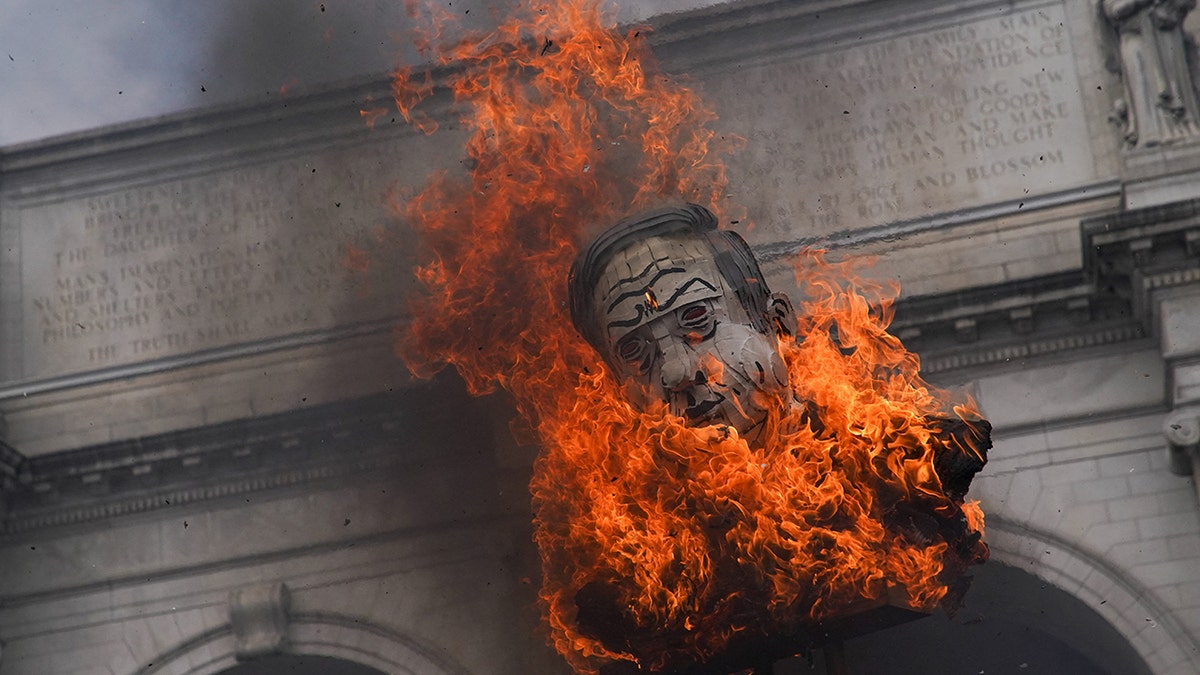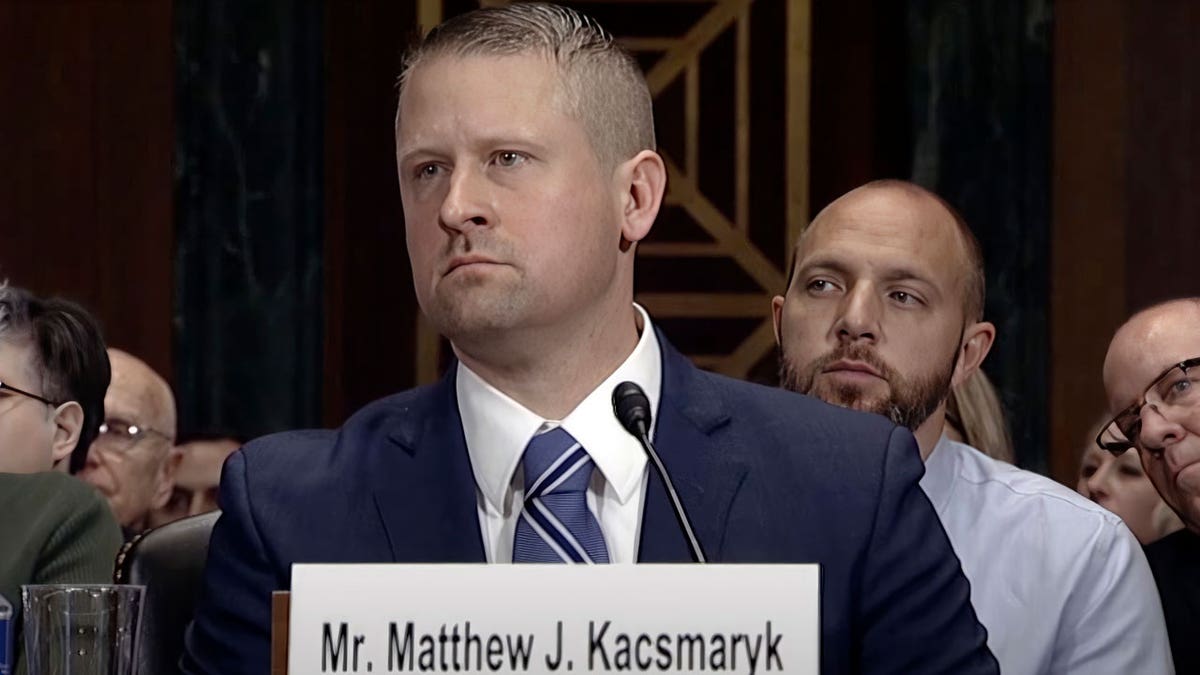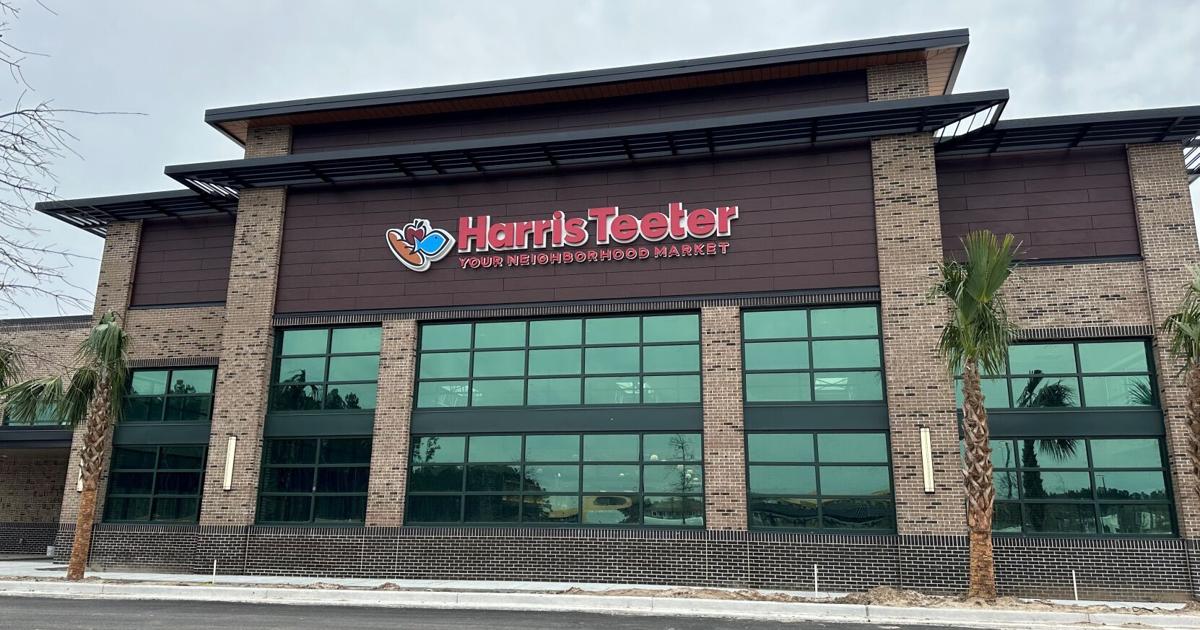Politics
In Ukraine, relief and rejoicing over U.S. aid vote

Ukrainians heaved a collective sigh of relief Sunday after the U.S. House of Representatives approved a long-sought $61 billion in aid, breaking a legislative logjam that had deepened hardships on the war’s front lines, and made it difficult for Ukrainian forces to fend off Russian attacks on civilian neighborhoods and critical infrastructure.
However, with a fresh infusion of aid ready to be rushed in as soon as the Senate approves the measure and President Biden signs the measure into law — both expected to happen by midweek — it may now take some time to determine whether Russian forces’ battlefield momentum of recent months can be reversed, analysts said.
And Ukrainians were braced for at least a short-term redoubling of the near-nightly pummeling of cities and towns across the country with missiles and drones — which in recent weeks was exacerbated by an alarming depletion of Ukrainian air defenses. An angry Russia could try to get in more punishing attacks before more air-defense help arrives, some feared.
“First of all — thank you, thank you,” said Anastasia Chuchin, 36, who was hurrying to catch a train on a rain-soaked morning in the capital, Kyiv. “We’re very grateful for this assistance. But we may still have some really hard days ahead of us.”
President Volodymyr Zelensky issued a statement of appreciation moments after the vote, which occurred late Saturday evening Ukraine time. He thanked by name House Speaker Mike Johnson, the Louisiana Republican who had been heavily lobbied by Ukraine’s supporters to bring the measure to a vote despite bitter opposition from his party’s far-right flank.
“This is a life-saving decision,” Zelensky said in a Saturday night address to the country in which he expressed gratitude to all those in the United States who, “like us in Ukraine, feel that Russian evil definitely should not prevail.”
Just as important in that initial reaction was what Zelensky did not say. The Ukrainian leader carefully refrained from alluding to Ukrainians’ frustrations over how long it had taken to move the aid measure forward — or to widespread fears here that American assistance might be on the verge of drying up altogether, particularly if former President Trump, the Republican nominee, wins back the White House in November.
In an interview aired Sunday, though, the Ukrainian leader took a starker tone about setbacks directly tied to the fact that “the process stalled for half a year.”
“We had losses …. in men, in equipment,” he said on NBC’s “Meet the Press,” particularly citing the deteriorating situation in Ukraine’s Donbas region, its industrial heartland.
“The east was very difficult, and we did lose the initiative,” he acknowledged. “Now we have the chance to stabilize this situation.”
As the political infighting dragged on in Washington, Ukrainian officials expressed particular alarm over the systematic destruction of crucial energy infrastructure, such as a power plant wrecked by missiles outside Kyiv this month. In some parts of the country, the targeting of electricity-generating plants has caused power cuts of a scope and duration comparable to those seen much earlier in the war.
U.S. defense officials have not provided a detailed breakdown of what will be in the first tranche of assistance, but the first order of business will likely be to replenish stores of munitions used by Ukrainian forces along a front line that stretches for hundreds of miles, arcing through the country’s south and east. Field units have reported rationing artillery shells and precision rockets even as Russian troops mount an aggressive push in places like the key eastern town of Chasiv Yar.
Speaking on CBS’ “Face the Nation” on Sunday, Sen. Mark R. Warner (D-Va.), head of the Senate Intelligence Committee, said he was confident the U.S. would be able to resume shipments of equipment by the end of the week.
“This should have happened six months ago,” Warner said of the House vote to approve the aid. “The next best time is now, this week. … If [Ukrainians] don’t have the materiels, they can’t carry this fight to the Russians.”
U.S. and Ukrainian officials said resupply efforts could take place relatively quickly, because of supply chains and logistical networks established early in the more than two-year-old conflict. Some of those could be reactivated within days.
Even so, the Institute for the Study of War, a Washington-based think tank, noted that “Ukrainian forces may suffer additional setbacks in the coming weeks” while waiting for the arrival of weaponry that will allow them to stabilize the front lines.
While Russia has not managed any major battlefield breakthroughs since capturing the eastern town of Avdiivka in February, independent military analysts had reported steady incremental advances, amounting to hundreds of square miles of territory, that could have left Ukrainians hard-pressed to contain a concerted Russian push.
With the imminent arrival of aid, though, Ukrainian forces “will likely be able to blunt the current Russian offensive assuming the resumed U.S. assistance arrives promptly,” the institute said.
Russia, predictably, hammered on what has become a key talking point — that U.S. assistance would do little more than prolong a bloody confrontation. Kremlin spokesman Dmitry Peskov also suggested that the main idea behind the package was to funnel money to U.S. weapons manufacturers.
The House vote “will make the United States of America richer, further ruin Ukraine and result in the deaths of even more Ukrainians, the fault of the Kyiv regime,” Peskov said, according to official Russian media.
Some U.S. lawmakers said coming to Ukraine’s aid now had helped avert sending a dangerous signal of U.S. weakness to Moscow.
“If we surrender Ukraine like we did Afghanistan, which was a debacle, will the United States be weaker or stronger?” Rep. Michael McCaul (R-Texas), chair of the House Foreign Affairs Committee, said on ABC’s “This Week with George Stephanopoulos.”
“We were running out of time,” McCaul said. “Ukraine was about to fall.”
In the NBC interview, Zelensky said the passage of the bill would send a powerful message to Russia that Washington stands by Kyiv, and that the war would not devolve into “a second Afghanistan.”
“I think this support will really strengthen the armed forces of Ukraine, and we will have a chance for victory,” Zelensky said through an interpreter.
European allies, for their part, had watched the drawn-out aid drama with mounting anxiety and exasperation. But most quickly pivoted to public expressions of optimism and unity.
“Ukraine is using the weapons provided by NATO Allies to destroy Russian combat capabilities. This makes us all safer, in Europe & North America,” NATO Secretary-General Jens Stoltenberg posted on the platform X.
A few, including Polish Prime Minister Donald Tusk, could not suppress a slightly sardonic tone even in expressing relief. NATO allies that feel more directly threatened by Russia, including the Baltic states and Poland, have long viewed the conflict with a sense of crisis and urgency, and were at times incredulous as U.S. support appeared to flag.
“Better late than too late,” Tusk wrote crisply on X, referring to the long-delayed House vote. “And I hope it is not too late for Ukraine.”
Many Ukrainians, whose days and nights are punctuated by air alerts that send people scurrying into basement bunkers or taking makeshift shelter behind a “second wall” at home, were eager to make the point that not only their own safety was at stake.
“This is a recognition that helping us in our fight against Russia and [Russian President Vladimir] Putin helps Europe, helps democracy, helps the entire whole world,” Dmytro Laba, a 36-year-old IT specialist in Kyiv, said of the House vote. “Even the United States of America.”
King reported from Kyiv and Wilkinson from Washington.

Politics
Park Police union says officers ‘did everything they could’ during DC anti-Israel riot

Following the protests at Union Station by anti-Israel agitators defacing federal property in protest of Israeli Prime Minister Benjamin Netanyahu’s address to Congress, a Park Police union is pushing back against criticism that only a few arrests were made.
Thousands of Hamas-sympathizing agitators descended on Washington, D.C., Tuesday, at one point defacing federal monuments with phrases in support of the terrorist group responsible for the Oct. 7 attacks in Israel, saying, “Hamas is coming.”
Twenty-three people were arrested at the protests, but some have suggested that number should have been higher.
Sen. Marco Rubio, R-Fla., posted on X, “How many more times are they going to allow leftist degenerates who support terrorism and hate America to vandalize property and attack police? There should have been hundreds of arrests today in D.C. not just 23.”
HOUSE REPUBLICANS REPLACE AMERICAN FLAGS AT UNION STATION AFTER ANTI-ISRAEL PROTESTS
The Columbus Memorial Fountain at Union Station during an anti-Israel protest on the day Israeli Prime Minister Benjamin Netanyahu addressed a joint meeting of Congress on Capitol Hill in Washington July 24, 2024. (Reuters/Seth Herald)
But the U.S. Park Police Labor Committee is pushing back.
“Our officers on the ground did everything they could to protect life and property. In fact, despite having only 29 officers available to mitigate damage — 29! — with no additional help from the Department of the Interior, we processed several arrests for charges ranging from assault on a police officer to destruction of government property,” Kenneth Spencer, chairman of the United States Park Police Fraternal Order of Police, said in a statement.
“That’s why it’s so disheartening to hear some members of Congress and members of the media, many of whom describe themselves as ‘champions’ of law enforcement, suggesting that officers gave protesters a ‘pass’ or that insufficient arrests were made.
“Nothing could be further from the truth. Anyone who truly cares to understand the problem would see that our officer staffing crisis is at the root of our agency’s mission readiness. A small unit of 29 officers arrested 10 individuals while being assaulted by a mob of thousands. We simply did not have the staffing or resources to accomplish a mass arrest operation.”
SEE IT: THE MOST DRAMATIC PHOTOS FROM WEDNESDAY’S PRO-HAMAS WASHINGTON, D.C. PROTESTS

An anti-Israel demonstrator sprays graffiti on the Christopher Columbus Memorial Fountain at Union Station on the day of Israeli Prime Minister Benjamin Netanyahu’s address to a joint meeting of Congress on Capitol Hill in Washington July 24, 2024. (Reuters/Nathan Howard)
At least one demonstrator, whose face was covered, was spotted by Fox News carrying what appeared to be the flag of the terrorist group Hamas while others were heard shouting “Allahu Akbar.”
KAMALA HARRIS REACTS TO ANTI-ISRAEL RIOTS AT DC’S UNION STATION

Anti-Israel demonstrators burn an effigy depicting Israeli Prime Minister Benjamin Netanyahu outside Union Station on the day of Netanyahu’s address to a joint meeting of Congress on Capitol Hill in Washington July 24, 2024. (Reuters/Nathan Howard)
The White House condemned the protests Wednesday evening, calling the chaos “disgraceful.”
“Identifying with evil terrorist organizations like Hamas, burning the American flag or forcibly removing the American flag and replacing it with another is disgraceful,” White House spokesperson Andrew Bates said in a comment to Fox News Digital Wednesday evening.
Politics
Ali: Kamala Harris has a campaign soundtrack: Beyoncé's 'Freedom'

Vice President Kamala Harris’ bid for the presidency has a soundtrack: Beyoncé’s “Freedom.”
The leading Democratic presidential candidate took the stage in her first visit to her Wilmington, Del. campaign headquarters and again during her first campaign rally in Wisconsin as the song played.
Now the cathartic anthem graces Harris’ first campaign ad, in which she says: “There are some people who think that we should be a country of chaos, of fear, of hate. But us? We choose something different: We choose freedom.”
Pit that against the musical number her competitor chose for his grand entrance on Night 3 of the Republican National Conference. Donald Trump walked out to James Brown’s “It’s a Man’s, Man’s, Man’s World,” a tone-deaf choice for a former president found liable for sexual abuse, who’s bragged about sexually assaulting women, a married man who paid hush money to a porn star and a former president who rolled back women’s reproductive rights 50 years with the repeal of Roe vs. Wade.
Maybe the Godfather of Soul would have endorsed Trump’s usage of his song, but Brown would be breaking with decades’ worth of musicians who’ve decried GOP candidates playing their tracks at rallies and booster events. Adele, Rihanna, R.E.M., the Rolling Stones, Prince, Neil Young, Guns N’ Roses and Queen are among the many artists who’ve spoken out against Trump using their tunes for campaign purposes.
Heart bristled when the McCain-Palin campaign used “Barracuda.” Tom Petty insisted George W. Bush back away from “I Won’t Back Down.” Bruce Springsteen decried Ronald Reagan’s appropriation of “Born in the U.S.A.”
Beyoncé, however, gave Harris her blessing to use “Freedom,” a single from her 2016 blockbuster album “Lemonade.” The song, which features guest rapper Kendrick Lamar, is an explosive expression of empowerment. At the time of its release, it spoke to public outcry around police killings of unarmed Black men and women — Eric Garner, Tamar Rice, Freddie Gray — and protests that were largely fueled by the ire of younger generations.
Whether Beyoncé was singing about the tyranny of a cheating spouse or racial injustice (or both), the song became an anthem for a new, potentially potent block of the American electorate.
For the first time, Gen Z and millennials could now account for as many votes as baby boomers and their elders, groups that have made up a majority of the electorate for decades.
Folks under 40 have grown up with Beyoncé and her ubiquitous work. Think of Beyoncé like the Who for boomers — their work is everywhere (Republican Sen. Rand Paul played the band’s anti-war hit “Baba O’Riley” when he campaigned in 2015) — or Nirvana for Gen X, except no one cares what we think. Whatever, nevermind.
The Harris campaign’s smart choice of music coincides with a willingness to lean into a meme culture that shot up organically around the 59-year-old VP since President Biden announced Sunday that he was dropping out of the race.
Pop star Charli XCX showed her support for Harris when she tweeted “Kamala IS brat.” The British singer is referring to the TikTok and Twitter edits of Harris’ image superimposed to songs from Charli XCX’s hit album “Brat.” The avalanche of memes come from a video clip in which Harris talks about her mother’s response to the hubris of youth: “You think you just fell out of a coconut tree? You exist in the context of all in which you live and what came before you.”
Right-wing social media used the quote to deride Harris as inarticulate and a “word salad” master, but liberal swaths of Gen Z have since reworked the clip into emojis and memes that celebrate Harris’ nonconformist approach. She’s become a viral sensation, in a good way, unlike J.D. Vance’s damning “single cat lady” memes and a cringey internet joke about encounters with couches.
It’s rare that relevant talent will shill for a Republican candidate. Case in point: Trump’s pop culture ambassadors at this year’s RNC were Kid Rock, Kanye’s ex Amber Rose and former WWE wrestler Hulk Hogan, whose big moment was ripping his shirt off and screaming “Let Trump mania run wild!”
Harris chose to let freedom ring, and she has Queen Bey behind her.
Politics
Texas sues Biden administration over program giving birth control to teens without parents' knowledge

Texas officials are challenging a recent order from President Biden’s administration that would allow schools to distribute birth control to teenagers without parental consent.
Texas Attorney General Ken Paxton announced Thursday that his office is suing the Biden administration over their 2021 change to Title X guidelines banning parental consent requirements for birth control services.
“By attempting to force Texas healthcare providers to offer contraceptives to children without parental consent, the Biden Administration continues to prove they will do anything to implement their extremist agenda — even undermine the Constitution and violate the law,” Paxton said in a statement.
TRUMP SAYS HE ‘WILL NEVER ADVOCATE IMPOSING RESTRICTIONS ON BIRTH CONTROL’ OR OTHER CONTRACEPTIVES
A woman takes the next pill from a monthly pack of contraceptive pills. (Annette Riedl/picture alliance via Getty Images)
The Texas legal battle began in Dec. 2021 when US District Judge Matthew Kacsmaryk ruled that Title X — the federal program that provides free, confidential contraception to anyone regardless of age, income or immigration status — violates parental rights and violates state and federal laws.
The case was argued by former solicitor general of Texas Jonathan Mitchell, representing father Alex Deanda, who said he was “raising each of his daughters in accordance with Christian teaching on matters of sexuality, which requires unmarried children to practice abstinence and refrain from sexual intercourse until marriage.”
SCHUMER PLANS VOTE ON ‘CONSTITUTIONAL RIGHT TO CONTRACEPTION’ IN BID TO PROTECT SENATE DEMOCRAT MAJORITY

Kacsmaryk, a Trump appointee, previously ruled that parents must be informed when birth control is provided to their children under 18 years old. (Senate Judiciary Committee via AP)
In response, the federal government updated guidelines to state that Title X projects “may not require consent of parents or guardians for the provision of services to minors, nor can any Title X project staff notify a parent or guardian before or after a minor has requested and/or received Title X family planning services.”
Paxton is now seeking a permanent injunction on this rule, which he claims defies the findings of the federal court.

Paxton and his wife Angela are pictured outside the Supreme Court. (Bill Clark/CQ-Roll Call, Inc via Getty Images)
Paxton filed the lawsuit in a federal court in Amarillo. It will likely be heard by Kacsmaryk, the same judge who previously ruled parents must be informed of birth control provided to their children.
-

 World1 week ago
World1 week agoOne dead after car crashes into restaurant in Paris
-

 Midwest1 week ago
Midwest1 week agoMichigan rep posts video response to Stephen Colbert's joke about his RNC speech: 'Touché'
-

 News1 week ago
News1 week agoVideo: Young Republicans on Why Their Party Isn’t Reaching Gen Z (And What They Can Do About It)
-

 News1 week ago
News1 week agoIn Milwaukee, Black Voters Struggle to Find a Home With Either Party
-

 Politics1 week ago
Politics1 week agoFox News Politics: The Call is Coming from Inside the House
-

 Movie Reviews1 week ago
Movie Reviews1 week agoMovie Review: A new generation drives into the storm in rousing ‘Twisters’
-

 News1 week ago
News1 week agoVideo: J.D. Vance Accepts Vice-Presidential Nomination
-

 World1 week ago
World1 week agoTrump to take RNC stage for first speech since assassination attempt













